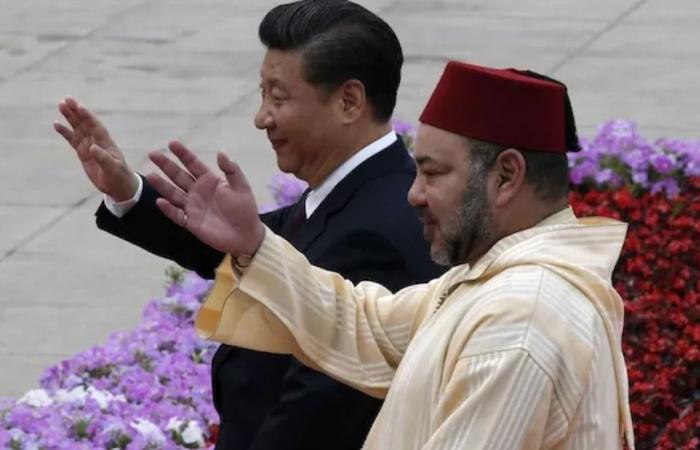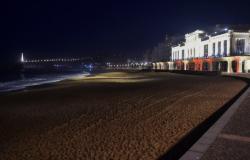Chinese President Xi Jinping, upon his return from the G20 summit in Brazil and an official visit to Peru, will mark a symbolic step by making a stopover in Morocco, according to the Spanish media Espiral 21. This gesture, hailed as a strategic decision major, reflects Beijing’s desire to consolidate its ties with Morocco and strengthen its influence in North Africa.
Xi Jinping’s decision to make a stopover in Morocco demonstrates the importance given by China to this country, a strategic anchor point between Europe, Africa and the Middle East. Sino-Moroccan relations, already marked by solid trade and diplomatic exchanges, are now part of a long-term vision, particularly within the framework of the “Belt and Road” initiative.
Launched in 2013, this vast Chinese project aims to redesign global trade routes by connecting Asia, Europe, Africa and the Middle East. Morocco, through its privileged geographical position and its role as regional leader, could become an essential hub for this program. The Tanger Med port, already a major transport hub connecting Africa and Europe, offers a unique opportunity for Beijing to strengthen its economic connections on the African continent.
During his stopover, Xi Jinping is expected to reiterate China’s interest in ambitious infrastructure projects in Morocco, particularly in the areas of transport, energy and advanced technologies. The idea mentioned by the Chinese president of building a bridge between Morocco and the Canary Islands, although still hypothetical, illustrates this desire to develop infrastructure capable of transforming the region into a strategic commercial crossroads.
At the same time, Beijing is continuing its investment in key sectors in Morocco. The automobile industry, through the presence of Chinese companies like BYD and CITIC Dicastal, and the electric battery sector, where China has global expertise, are concrete examples of this cooperation. These partnerships, already fruitful, should extend to other areas such as renewable energies and technological research, thus strengthening Morocco’s role as an African platform for Chinese companies.
Read also: Is China about to recognize Morocco’s sovereignty over the Sahara?
The Covid-19 pandemic has also demonstrated Sino-Moroccan solidarity. China has been a key player in supplying the Kingdom with vaccines, helping to protect its population and strengthen bilateral relations. This support symbolizes Beijing’s commitment to maintaining close relations with its African partners, of which Morocco is an essential pillar.
North Africa, a priority for Beijing
Xi Jinping’s stopover is part of a broader strategy aimed at increasing the Chinese presence in North Africa. Beijing, aware of the complex geopolitical dynamics of the region, sees Morocco as a stable and reliable partner. This initiative is accompanied by a desire to strengthen triangular relations between China, Morocco and Europe, in particular through increased cooperation with Spain.
During his recent visit to the Canary Islands, Xi Jinping highlighted the strategic role of this archipelago, located at the crossroads of maritime routes between Europe and Africa. Discussions were held on the development of an economic and logistics hub that could benefit the entire region, including Chinese investments in Morocco.
Beyond economic exchanges, this stopover in Morocco reflects a convergence of diplomatic interests. Beijing and Rabat share common visions on international issues, including multilateralism, the fight against climate change and sustainable development in Africa.
For Morocco, this strategic rapprochement with China represents an opportunity to diversify its international partnerships while consolidating its role as regional leader. Conversely, China finds in Morocco a leading ally to further penetrate African markets and promote its influence in a booming region.
With this unprecedented stopover, Xi Jinping is sending a clear message: Sino-Moroccan relations are not limited to economic exchanges, but are part of a global vision of strategic cooperation. This visit, even brief, could mark a turning point in strengthening ties between the two nations, while establishing Morocco as a key player in the “Belt and Road” initiative.
As the world moves towards a restructuring of geopolitical balances, the Sino-Moroccan partnership, rich in economic and political opportunities, promises to play a determining role in the future of relations between Africa, Europe and the Asia.






